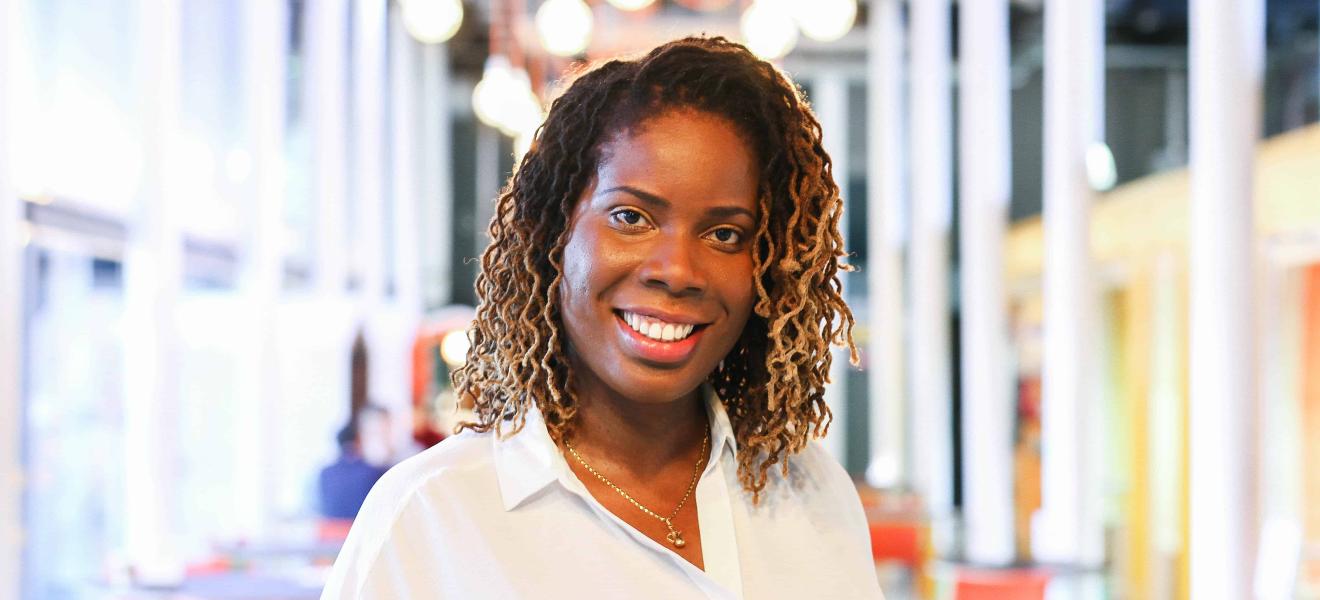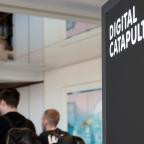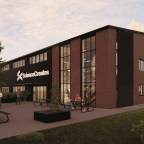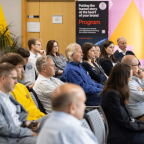
Diversity in Tech and Trump's America: Joyann Boyce, Founder & CEO of Arima & Co.
Who are you and what is Arima & Co.?
I am a marketer now turned founder/consultant. I started my business back in 2017 as a social media marketing agency and then I found a problem and became obsessed with it. It started with the lack of diversity I noticed in stock images. I started with a project that highlighted this issue which got featured on the BBC. Then I went on to look at marketing as a whole and realised there are many areas like that one that need to be improved and updated. It’s one of the oldest professions but not the oldest. So now our mission as Arima & Co. as a consultancy is to completely shift the narrative and help marketing agencies and companies create content that represents society.
In your research you found there was a lack of diversity in stock photos alone?
Not just in stock photos but also in terms of how people create marketing personas. This includes language used too. Recently a lot of studies have come out about job adverts being very gendered, and it’s the same in marketing adverts. Even when you look at everyday items like shampoo and deodorant, they’ll make something bright pink then black, but with the exact same ingredients. It's that sort of narrative we’re trying to change. We want to get people thinking a little deeper about what they are marketing. Take any gender neutral product. The marketers who have been trained in the ‘old school’ marketing techniques wouldn’t necessarily know how to market those items for a modern audience.
Where did the business come from? How did it all start?
It all started with me wanting to get into the marketing sector. I have a psychology degree and experience, but even when trying to intern, nothing was available to me. But then I found The Prince’s Trust. They helped me set up my first limited company and taught me about accounting and the law with regards to owning a business, so I owe them a lot. Over the years it has just grown from there. Being part of the tech community has also been very important. We are now building our own software, which is called ‘Include AI’. This software will allow us to take a campaign, look at it and highlight potential areas which may cause offence or be biased in a certain way based on data collected through the platform.
I’ve tried to get in to marketing myself and it’s certainly competitive, so I know how you must have felt!
It’s an interesting one because it’s the cycle of needing experience to get experience. Whenever we’re hiring, I only do tasks. It may be a little controversial, but I tend not to look at people’s CVs until we get to face-to-face interview. I’m more interested in seeing how they respond to a challenge. With something like social media, it’s relatively easy to craft an exercise. I can ask them to design a social media post of some kind. The way candidate goes about it, how they think about the task and attack it, that’s really telling for me.
That kind of hiring practice must make for an incredibly diverse team. How big is the Arima family?
So the team size shifts quite a lot. At the moment we are raising money for the software, and fundraising efforts can come from myself alone, but sometimes it will be done by around 8 people at any time. There are then 3 core members of the Arima & Co. consultancy team, with an extra 10-15 members who come in for each individual project.
I’m assuming all your work is done remotely? Do you enjoy working that way?
It is, and I do! It’s a shift. It was all in person but now because of COVID all the team members I had in the office are based at home and are happy with the setup, so I said let’s just keep it that way. It allows people to be a lot more flexible. None of our projects are 9-5 demanding, unless you’re interacting with clients, but outside of that you can do the work when you want and have it left open for people to work on freely.
So aside from The Prince’s Trust, where else are you looking for funding?
So The Prince’s Trust was where we went first about 4 years ago, so they are part of our origin story. Now we’re a well-established consultancy firm, with high-profile clients such as Nationwide and Adobe. In terms of the software, we built a prototype through a grant we received from the South West Creative Network (SWCN). We’re going to be pitching the prototype to investors hopefully in Q2 next year, to then get our MVP (Minimum Viable Product) on the market and do some beta testing. It’s a lot. I’m dealing in AI and data which gets pricier by the minute! As soon as someone tweets something about how bad AIs are, it pushes us back a few steps. But we’re getting there.
So has your ‘Include AI’ concept brought clients to you or are you still out there reaching out to other businesses?
We’re pretty ahead of the market now, so people approach us. One of the services we offer clients is that we will look at their website or a particular advertising campaign and tell them how it could be more inclusive, representative or accessible. Those are the same clients who have signed up to be our beta clients for the software. In terms of software development, I am currently studying a science masters, so I’m leading the tech aspects of it and developing it because when you ask for certain things to be done by engineers, they do exactly what you ask for! Which is an interesting problem to have…
The funding for the software is the next big step. Any idea what might come after that?
I think my big mission would be to completely change the marketing sector from education to industry. Every marketer should have a basic understanding of base accessibility and understand what inclusive language is and how it has to become part of their basic protocol. My goal for the business is that this type of work is not unique, as strange as it sounds. I feel like after the Trump Era, marketers and the media should have realised how big of an issue this is, but they didn’t. It’s clicking slowly and surely, but people are still trying to work it out. Companies have unconscious bias workshops, which is great, but what has to come after that awareness are solutions to eliminate bias. I’m excited for the diversity and inclusion sector to become an ‘actual’ sector. Right now it’s frequently limited to one workshop every few months, the tools from which don’t get used enough subsequently.
So you think the rise of Trump had a marked effect on the marketing sector worldwide?
I think so, particularly in the publishing sector. They became more aware of how biased content could be and people were calling them out on it. I think we saw it most recently in articles about footballers and articles about Meghan Markle. People noticed the difference in how these stories were told and marketed. The Trump Era brought about a rise in the amount of people wanting to hold the media accountable, not to mention the Cambridge Analytica scandal and the unfortunate murder of George Floyd. Society is now looking at the internal bias process in their own industries, rather than a generic blanket. Working with big clients like Nationwide is very interesting. They have a huge marketing team and talking to them about all the processes and all the auditing they do is fascinating. They are actively making an effort to represent all their members as well as they can, and more people should be like that.
It sounds like Nationwide is making huge strides in this area, which is great! Are there any other industries which you think are matching their progress?
I think the cosmetics industry are making amazing progress in this area. After campaigns put forward by Fenty, Rihanna’s makeup company, all other brands suddenly were doing the same thing. You can look at Fenty’s campaign launch and literally pinpoint the moment when other businesses’ marketing content changed as a result.
And the slower industries…?
I would say the B2B sectors. They’re slower in tech across the board generally. They don’t have the same demand and accountability being held as B2C markets. I think this comes a little bit from the fact that many B2B businesses will still make this sort of programme part of the corporate responsibility budget, rather than recognising the profit that could be made from solutions to this sort of problem, to say nothing of the fact that it’s the right thing to do.
You really have your work cut out. What does your average working day look like personally?
It’s podcasts all day! Unless I’m in a meeting. Those usually start around 8am. Then a meeting with the team. Depending on the day there may be a client workshop or internal training, or I might be working on my masters. Now we’re out of COVID, there will be a lunchtime/afternoon networking event or more training, either internally or with a client. It’s 8am to 8pm. There’s actually a great tech entrepreneur called Sharmadean Reid. She outlined what her week was like, and it was fascinating. She blocked off Mondays to do everything internal, and then Tuesday is everything sales, and the rest of the week is whatever is left. This is the sort of schedule I try to follow. It is a scary feeling having to schedule lunch though.
That’s the one thing I do schedule!
Don’t get me wrong, food comes first and everything else falls in to place around that.







